[ad_1]
The Glory: Part 2 (Review)
by DaebakGrits
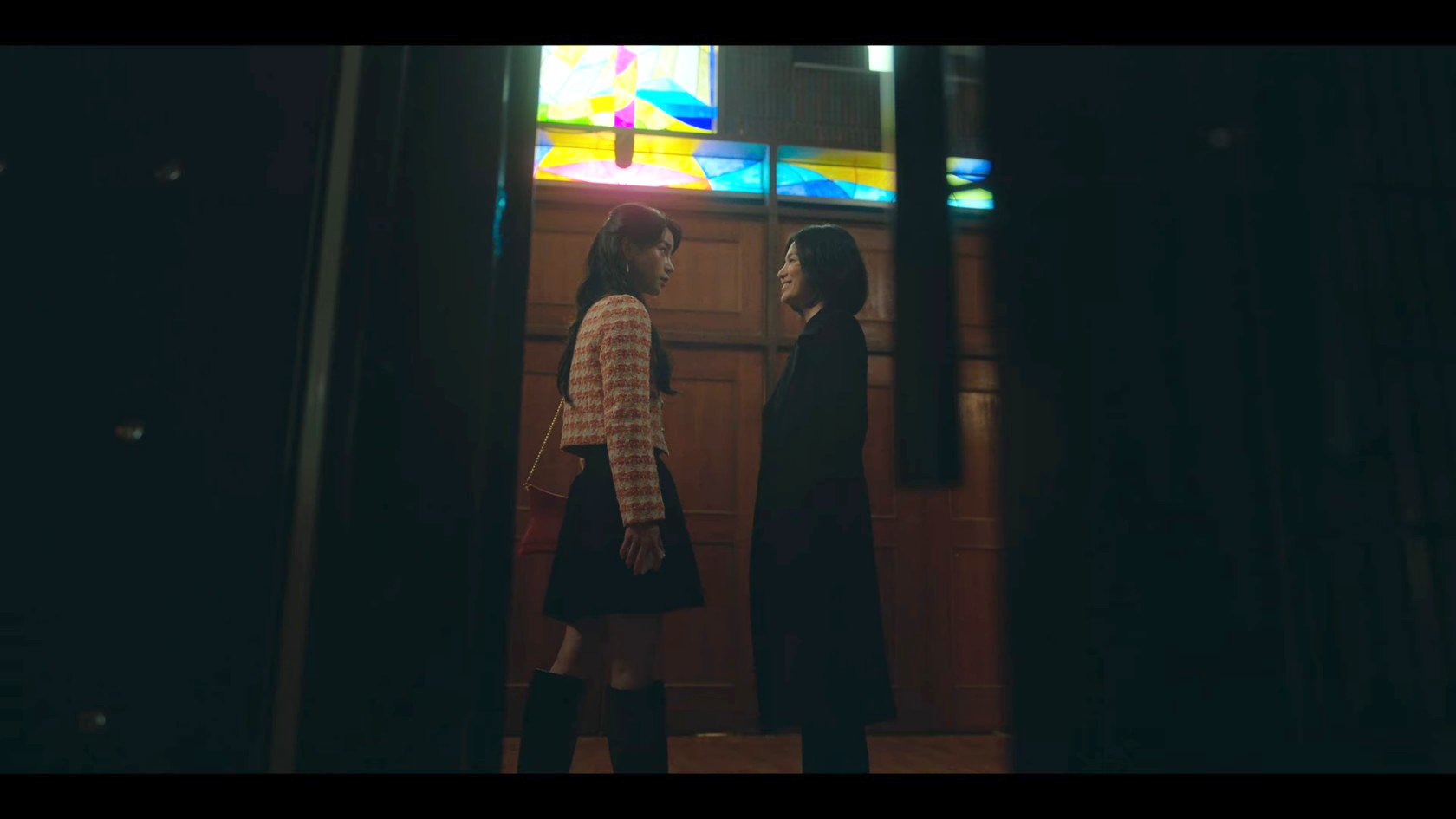
After slowly ramping up the tension in Part 1, the second half of The Glory picks up the pace as our heroine closes in on her prey. Although there are a few obstacles in her way, her road is mostly clear, and it becomes apparent that this revenge story isn’t so much about the journey as it is about the violent and satisfactory ending.
PART 2 REVIEW
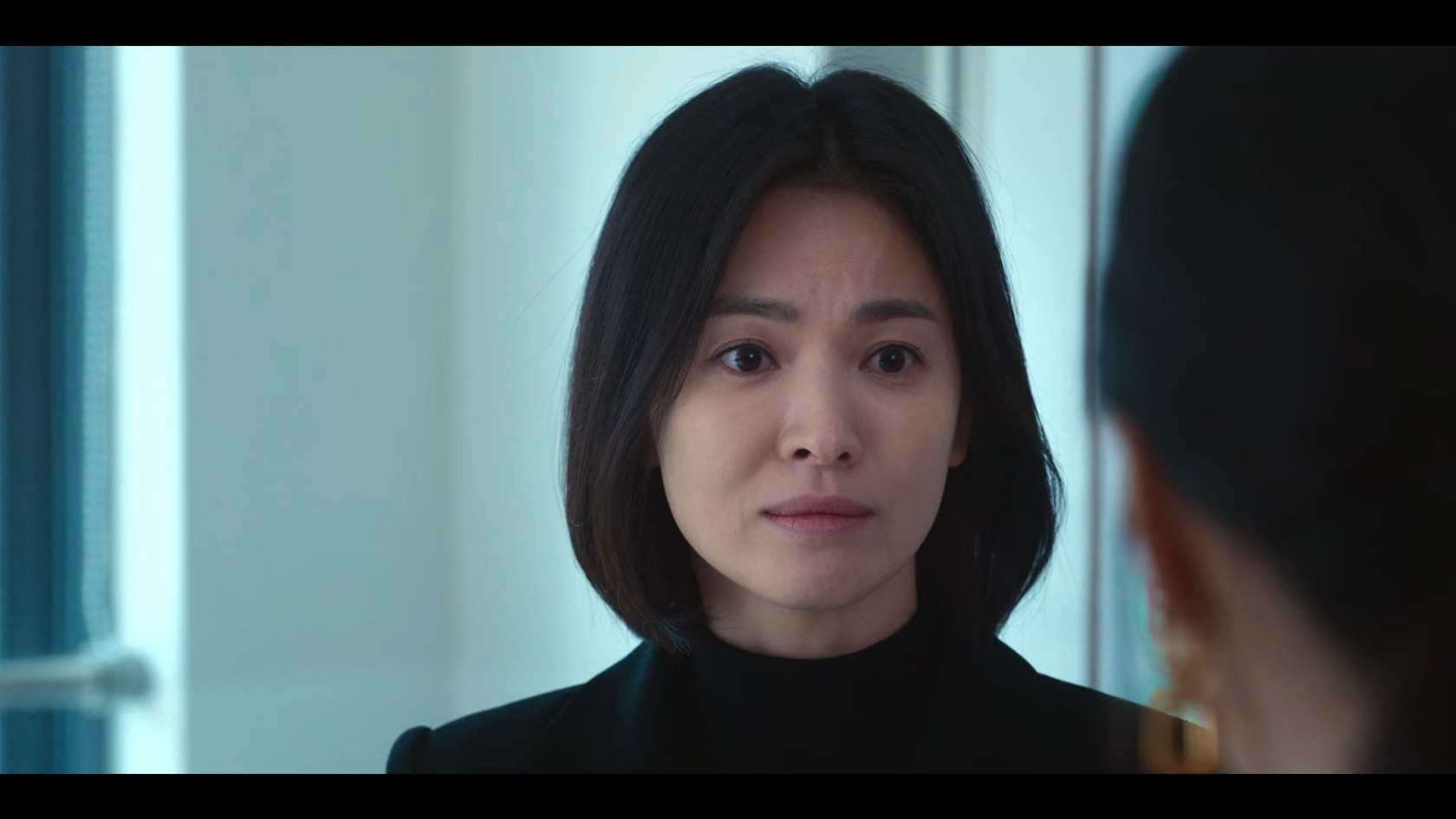
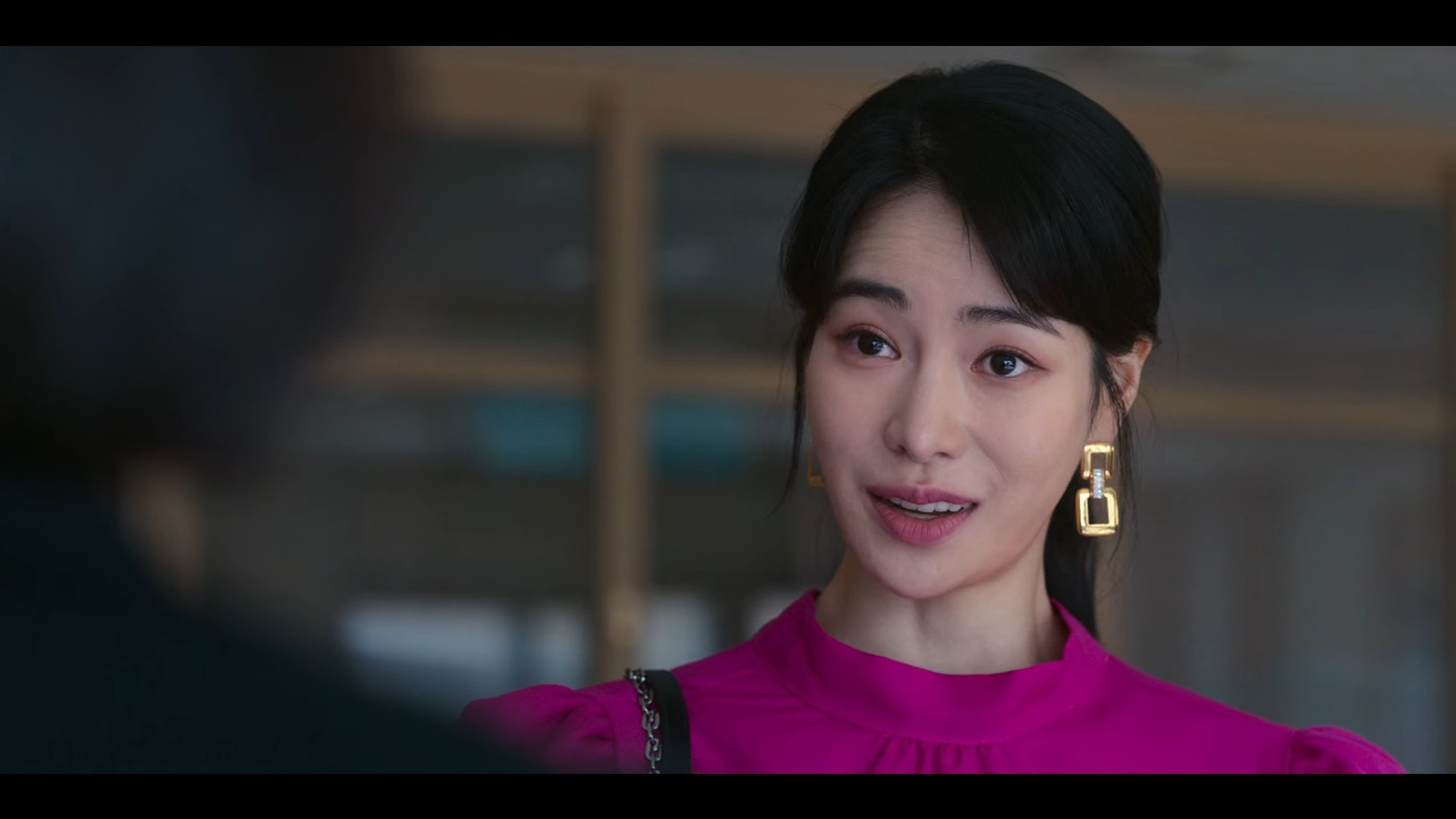
The Glory was not a drama I expected to finish — let alone enjoy — because revenge stories, in my opinion, often require the largest amount of suspension of disbelief. So much can go wrong, especially when every piece of a character’s plan hinges heavily on the predictability of humans. And when you have a protagonist like MOON DONG-EUN (Song Hye-gyo), who announces her intentions early on — thus losing the advantage of the element of surprise — it seems even more unrealistic that her revenge will be enacted successfully. But a large part of this drama’s appeal stems from Dong-eun’s confidence that she will be successful, and given that she’s had 17 years to plan the perfect revenge, the anticipation lies not in will she execute her plan but in how.
The drama’s first half clearly established the reasons the audience should root for Dong-eun, and certainly didn’t pull any punches in explaining Dong-eun’s backstory. It was violent, gruesome, and left lasting scars — literal and psychological — on Dong-eun. The sheer injustice of the situation made me vicariously vengeful, and who cares about pragmatism and plot holes when all you want is to watch the story’s villains fall from their towers and burn in their own personal hell?
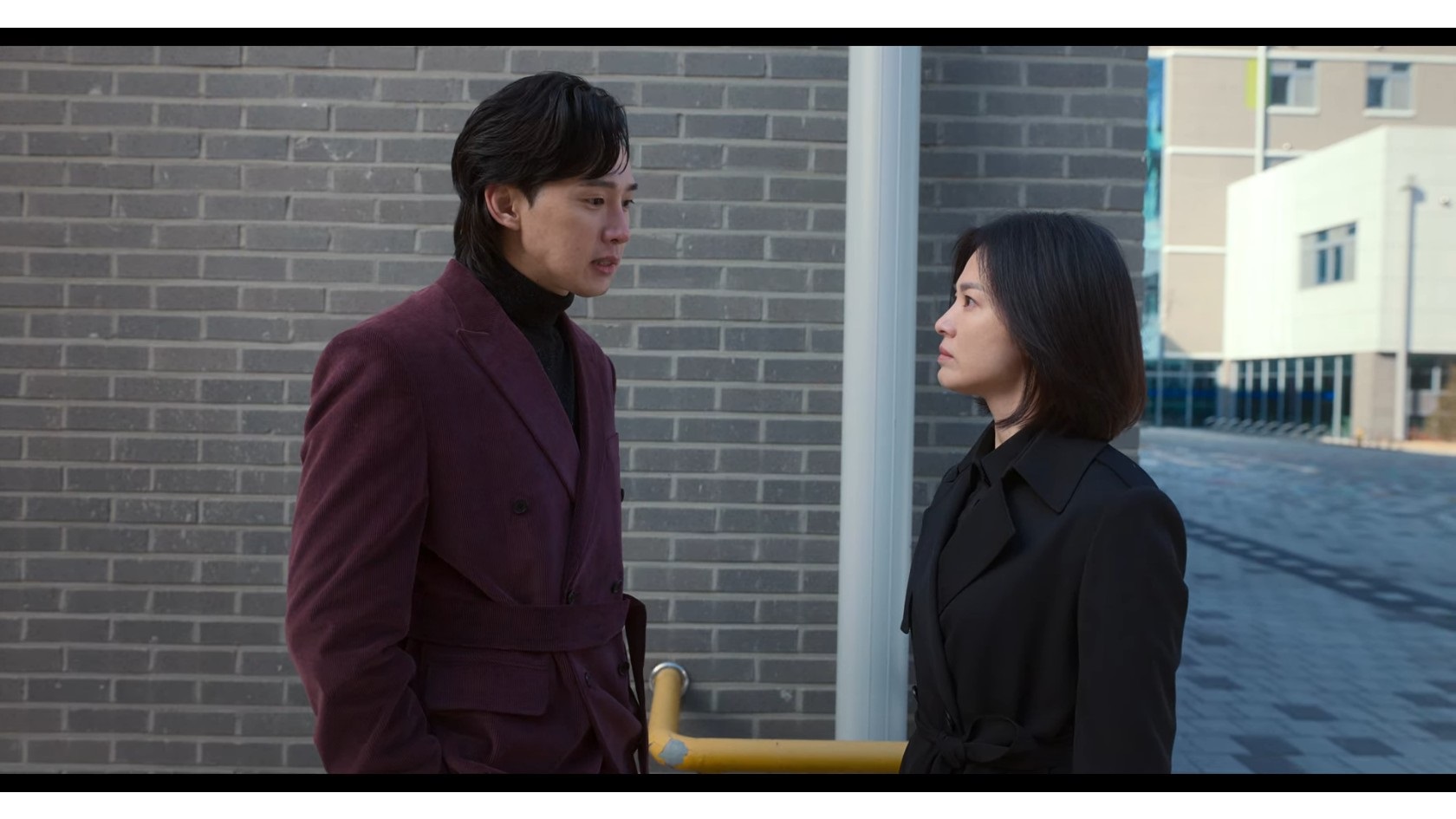
Revenge K-dramas also have a history of shying away from the line between heroes and villains, and more often than not, the protagonist of a revenge drama tends to naively uphold a code of morals aligned with the very justice system that either failed them or helped to create the opponent they’re up against. Quite frankly, even though we don’t want our heroes to act in a way that would cause them to do a stint in prison, a goody two-shoes doesn’t make for a very compelling main character in a revenge drama, especially when the antagonist is someone who doesn’t play nice and has a distinct advantage over a character that plays by the book.
Dong-eun, however, doesn’t follow a boringly virtuous path. Her toe crosses into a gray area that verges on villainous. Her hands are clean, but only because she skillfully manipulates others into doing her dirty work for her. Again, do things go unrealistically well for her in this regard? Yes, but it wasn’t terribly noticeable until Part 2, and by that point, as I said, I was too invested in the outcome of Dong-eun’s revenge to care everything fell into place a little too easily and — perhaps — even better than Dong-eun expected.
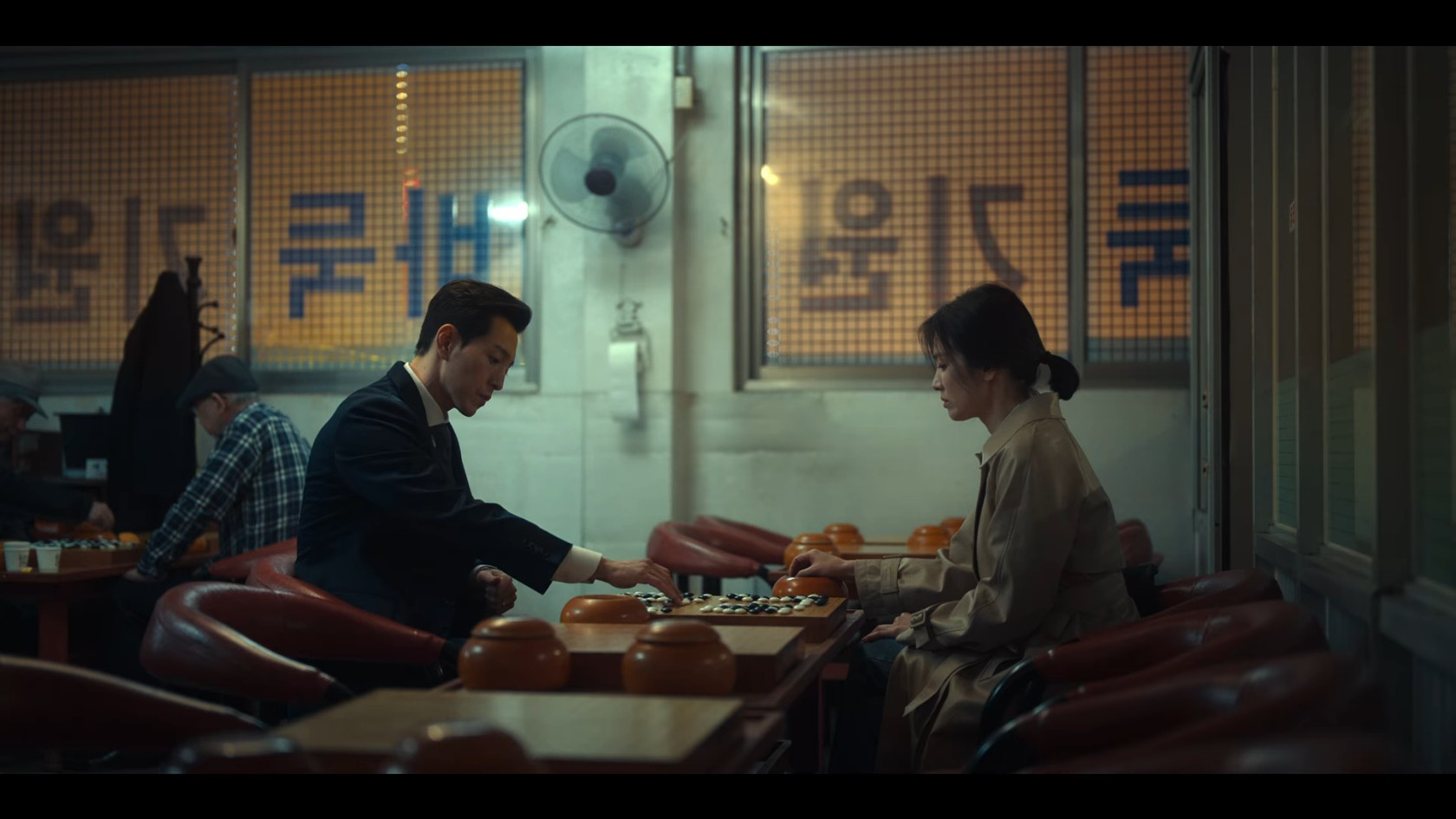
While the whole of The Glory was steeped in the baduk metaphor, Part 1 focused more on the early stages of the game as Dong-eun put the pieces of her plan in motion and began constructing the net around her opponents. Part 2 was all about her closing in and entrapping them, and as things escalated, there was an uptick in pacing that made Part 2 feel like a distinctly separate chapter of the overall story.
In looking back on the series as a whole, though, I wish the two parts had dropped together as a complete series — and not just because the wait in between parts suuuuucked. One minor complaint is that the gap between the release dates made it harder to recall important details from Part 1, but the biggest issue is that it’s easier to make comparisons between the two parts.
Even though Part 1 was slower and may not have served up much in the justice-porn department, it was richly crafted and character driven. In contrast, the second half of the drama felt rushed and less polished. I enjoyed Part 1 more, but I also can’t help but wonder if the overall series would have been better if the events of Part 1 had been condensed to allow Part 2 to have better pacing.
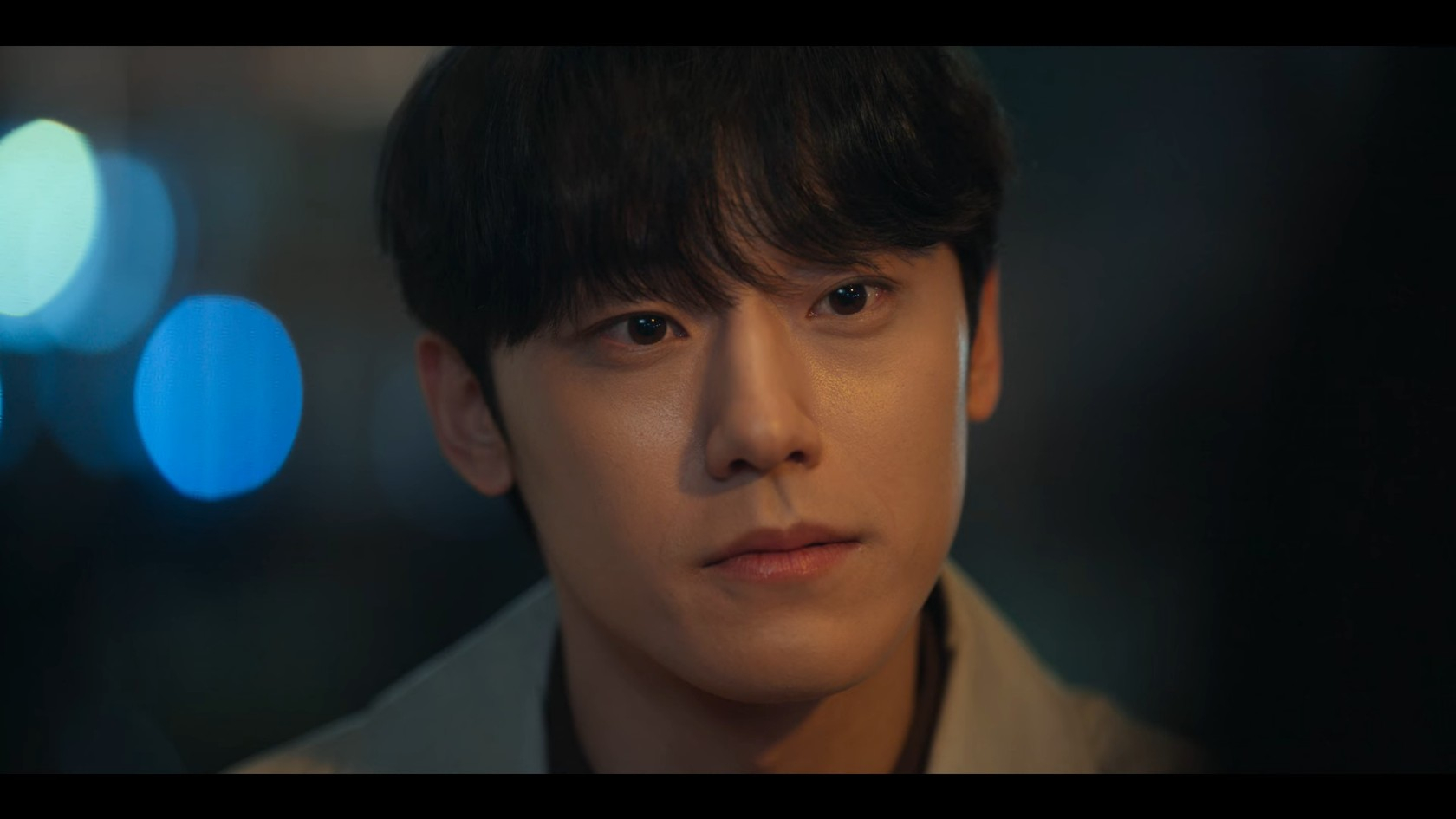
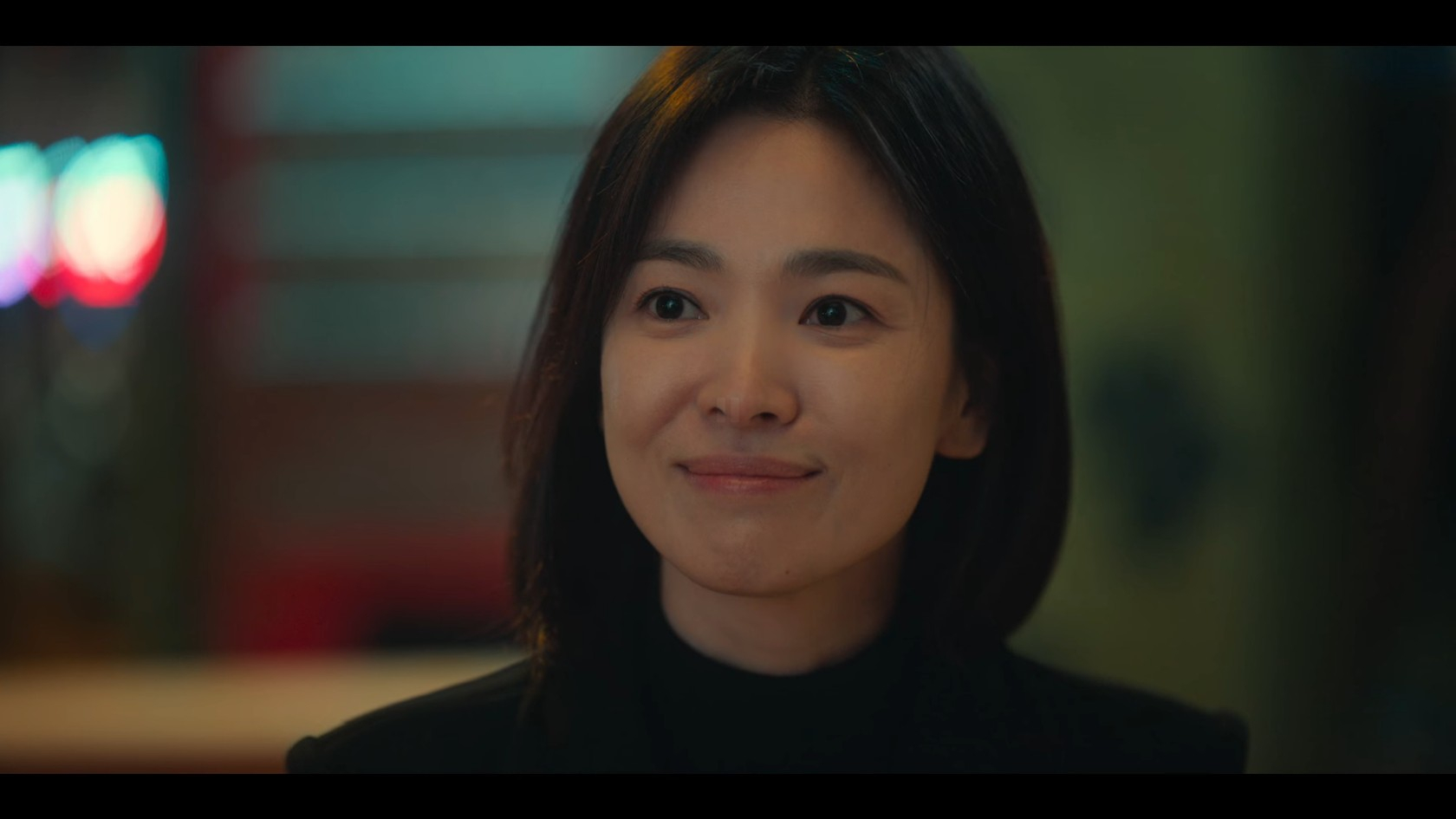
Despite the aforementioned negatives, though, I enjoyed this series immensely because of the characters. Dong-eun was hardened and focused, but like an icicle she shined like a diamond under the right lighting. And although writer Kim Eun-sook decided that JOO YEO-JUNG (Lee Do-hyun) was the light that brought out our heroine’s smile, and I have mixed feelings about this particular relationship arc.
On the surface, Dong-eun and Yeo-jung make an interesting pairing. Both have experienced traumas that spark a strong desire for revenge and establish a mutual understanding, but the personas that they display for the public are polar opposites. Yeo-jung hides his pain behind a smile, and Dong-eun has learned to wear her literal and figurative scars as armor — and a reminder — of why she cannot lose her focus. Unfortunately, while neither of them are a prime example of stable mental health, Yeo-jung is emotionally dependent on Dong-eun in a way that makes it objectively difficult to support their relationship even though they have sweetly endearing moments together in Part 2.
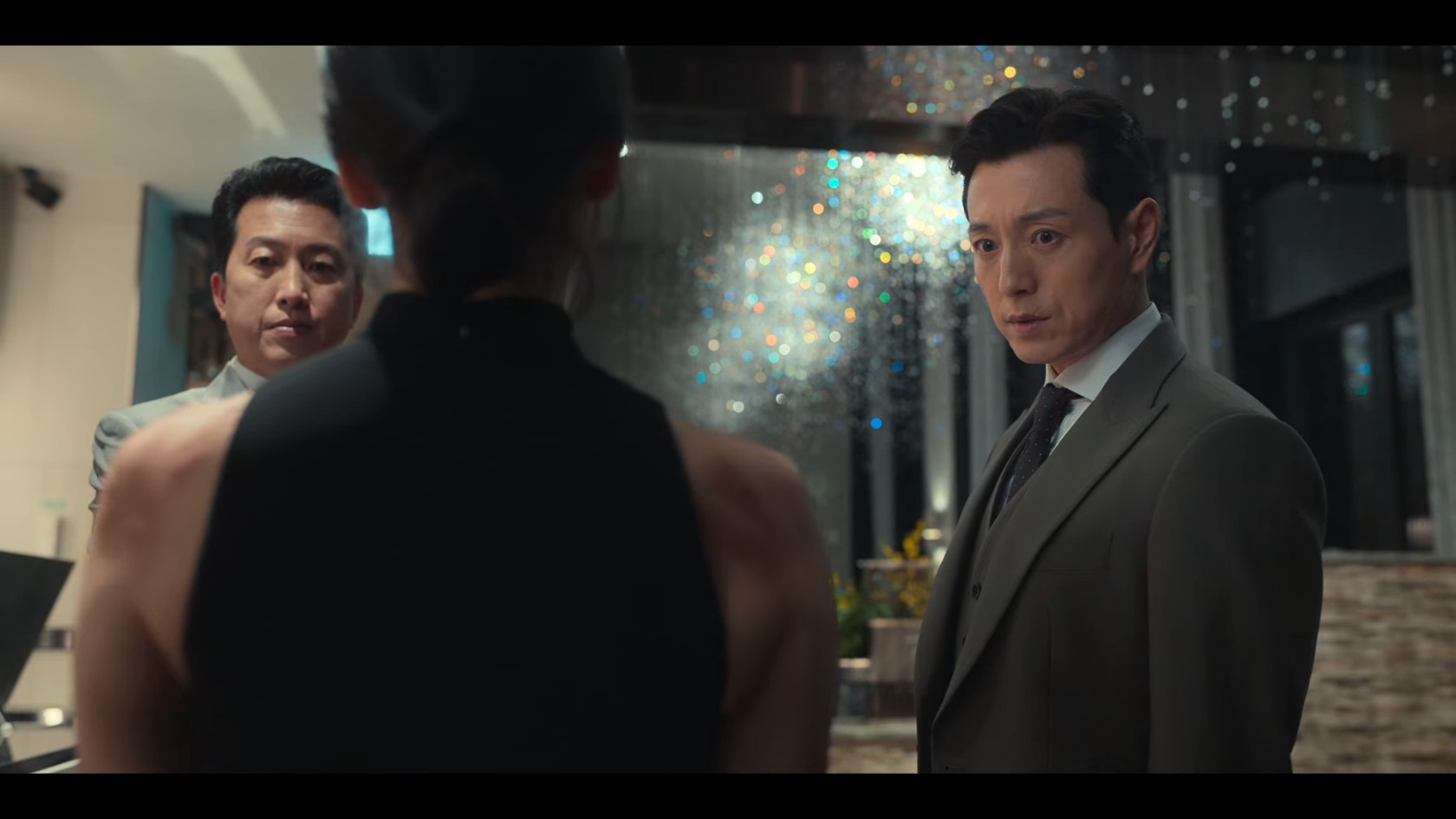
But honestly, the real reason I can’t fully stand behind the Yeo-jung and Dong-eun pairing is because HA DO-YOUNG (Jung Sung-il) is a far more captivating character. There was never a blatantly romantic moment between him and Dong-eun, but their baduk matches had an undercurrent of curiosity and subdued flirtation that left me wanting more. I can’t deny that it’s more realistic, given the circumstances, that this particular ship didn’t sail, but that doesn’t stop me from wishing Dong-eun had snatched up nemesis’s man as part of her revenge. At the very least, though, I would have been happier if Dong-eun and Do-young had more one-on-one moments in Part 2.
Instead, Part 2 saw Do-young coming to terms with his wife’s duplicity and then, when he realized that there was no redemption for PARK YEON-JIN (Im Ji-yeon), doing what he needed to do in order to protect his daughter. It seems unlikely that Dong-eun would have predicted the extent Do-young would go to retain his paternal rights (no spoilers from me), but it was satisfying to see him become a silent ally when their objectives aligned.
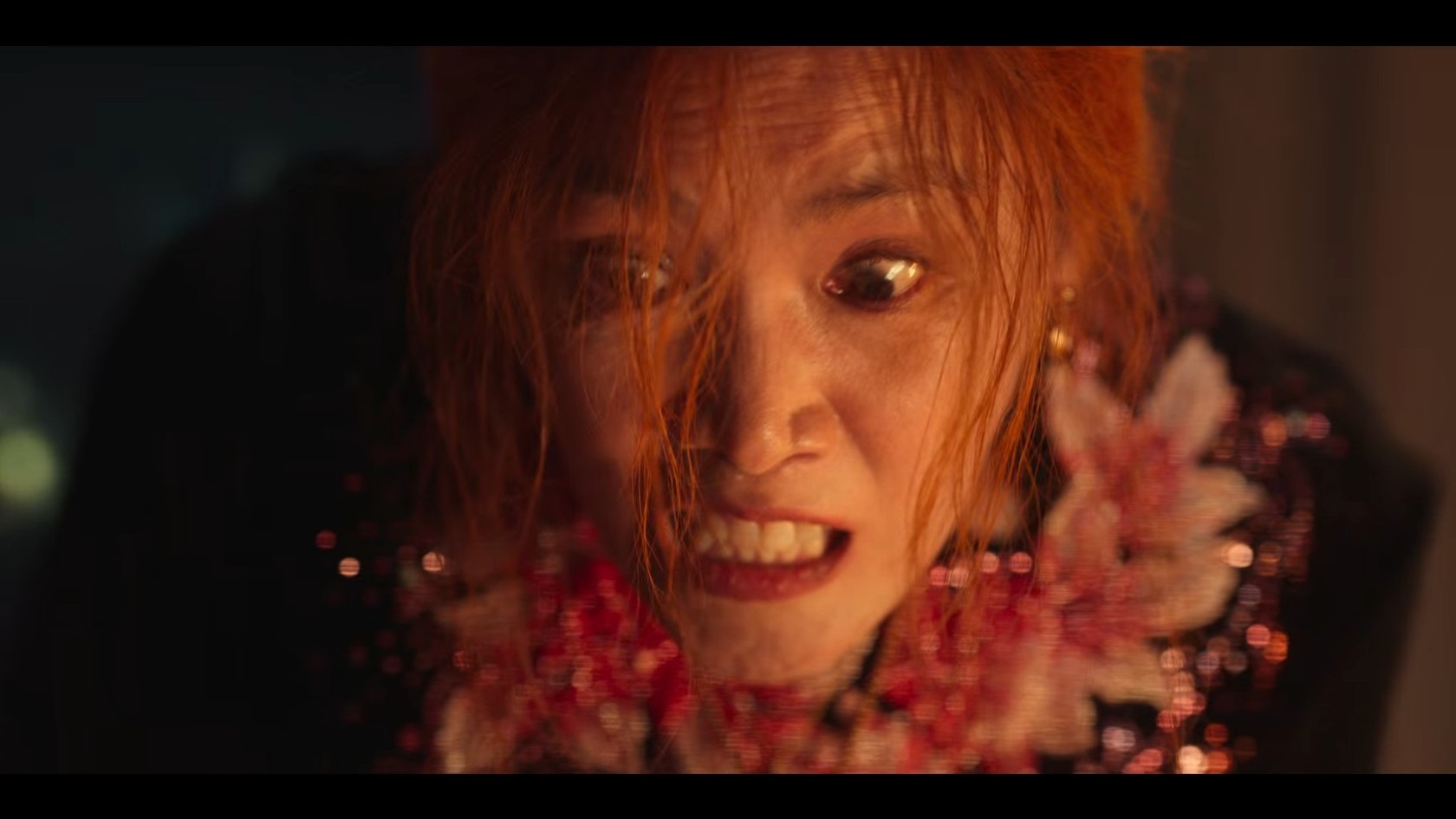
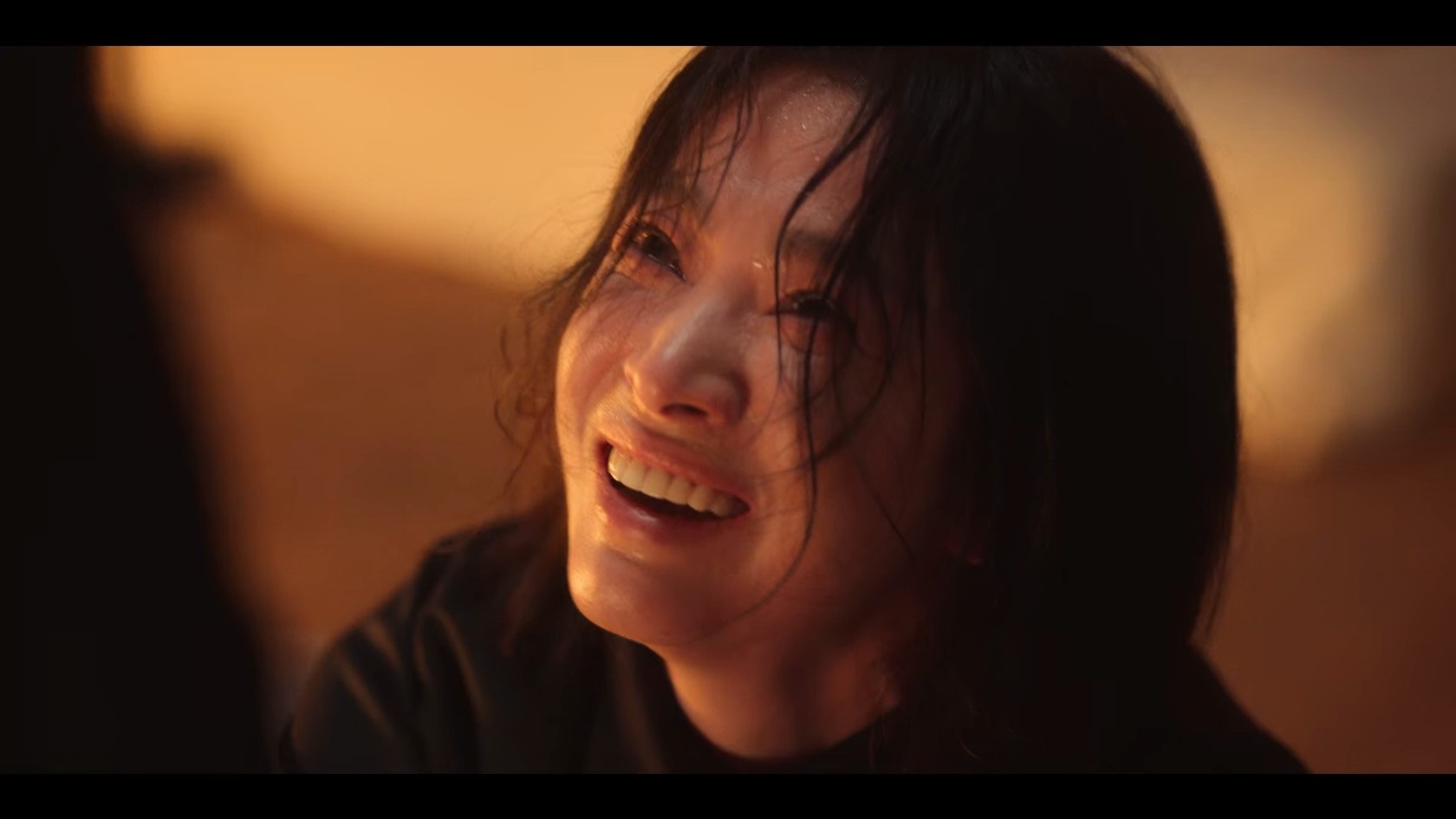
Do-young was also a great foil for all the abhorrent parental figures in this drama. He may not have been Ye-sol’s biological father, but he was the only genuinely caring parent in this whole drama. Dong-eun’s mother, on the other hand, is a massive piece of dog feces that someone has tracked in on the carpet. Her chaotic sloppiness disgusted me, and every time she was on screen, I felt uncomfortable and my sympathy for Dong-eun increased tenfold. Of all the characters in dramaland, she’s the one I’d most enjoy seeing hit by a truck of doom, and while I’m glad that Dong-eun found a way to eliminate her mother from her life, it was honestly less makjang than I would have liked.
Yeon-jin may have been the main antagonist of this drama, but she was far more palatable than Dong-eun’s mother — and not just because she was more aesthetically pleasing. But, as is often the case with the natural world, the beautiful and colorful creatures are usually the most poisonous and deadly, and Yeon-jin is no exception. Im Ji-yeon did exceptionally well in the role, projecting both Yeon-jin’s confidence and then, when the moment called for it, twisting her face to reveal her character’s darker, ugly side.
That said, Yeon-jin as our main villain was a bit of a let down because I never really felt like she could go toe-to-toe with Dong-eun. Admittedly, she’s a former bully turned bitchy socialite — not a gangster boss with a posse of henchmen to do her bidding — so realistically she probably wouldn’t be much of a match for Dong-eun, who was far more intelligent and had the advantage of many, many years to plan her revenge. But still, I was hoping for a more prevalent cat and mouse dynamic. Instead, Part 2 was more like a game of Jenga; Dong-eun pulled one key piece and caused Yeon-jin’s tower — and friend/support group — to collapse around her.
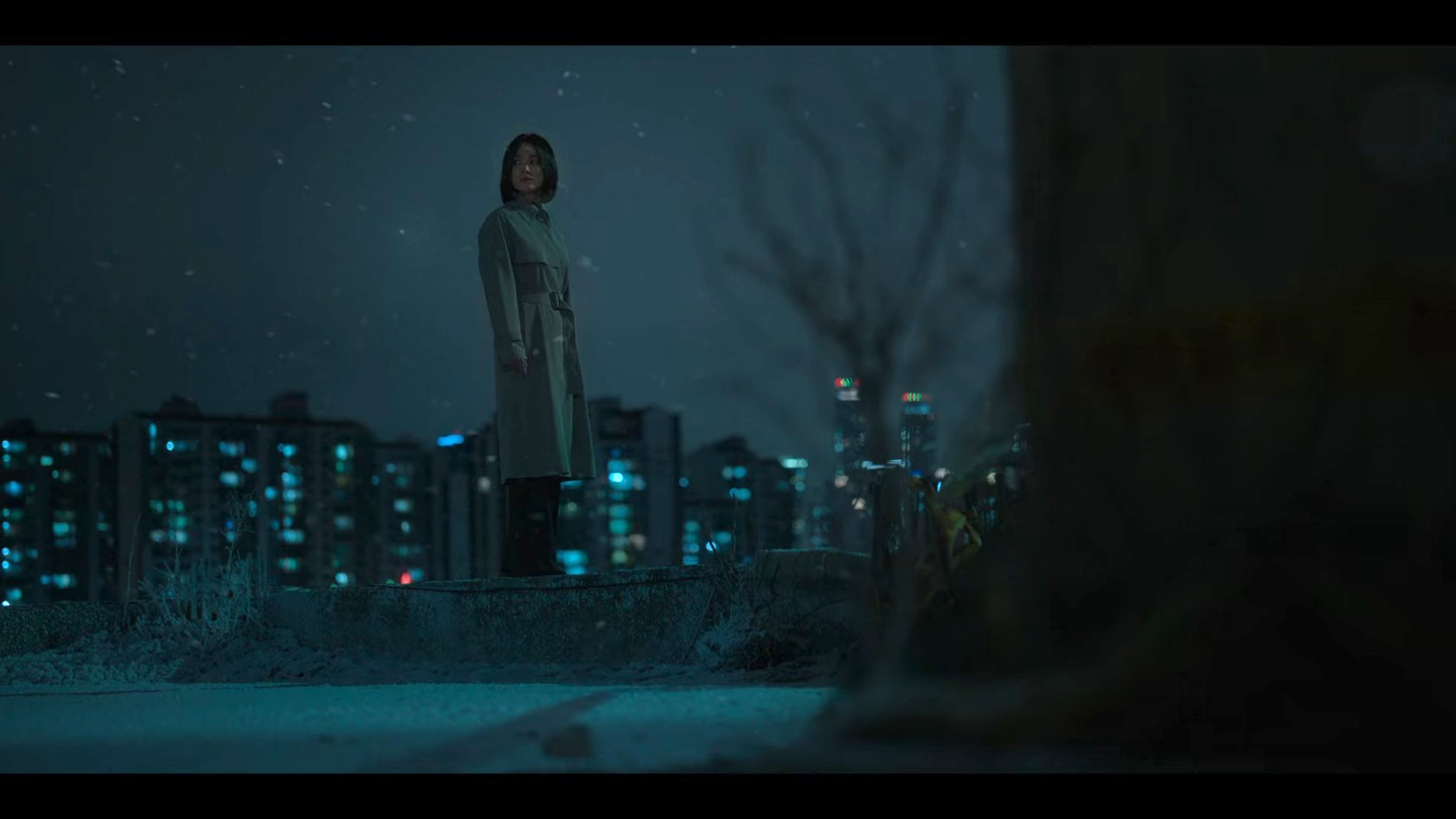
Once Dong-eun has enacted her revenge, she no longer has the motivation to keep living. I can’t say that I’m surprised by her suicidal thoughts and intentions, as it’s very in line with the character, but having Yeo-jung’s mother show up and talk her down from the ledge seemed too random. I’m also a bit uncomfortable with the idea that Yeo-jung and another revenge plot — this time against the man who killed Yeo-jung’s father — becomes Dong-eun’s new reason for living. It further perpetuates my belief that her loveline with Yeo-jung is entirely unhealthy and imbalanced. But hey, whatever keeps her going, I guess. Not to mention, we really did need some closure for Yeo-jung’s backstory, which largely factors into his ability to sympathize and align himself with Dong-eun’s cause.
It feels a bit odd to say this — in light of the gratuitous violence, sex, drugs, and generally darker themes — but The Glory has a weirdly happy ending. The bad guys got their just desserts, and their punishments were befitting of their crimes — in that they were equally violent and gory in most cases. Everyone’s favorite zaddy Do-young went on to live a peaceful life with his daughter in the UK, and even though KANG HYUN-NAM (Yeom Hye-ran) didn’t reunite with her own daughter on screen, we at least know that Hyun-nam wasn’t going to feel lonely for much longer, as she was recruited to help Dong-eun and Yeo-jung with their next revenge plot.
I don’t know what it says about the current state of K-dramas right now, but when a dark, Netflix-produced show delivers one of the more gratifying drama endings of the year, I think we need to pull together and host an intervention for the dramaland rom-com writers. Who’s with me?
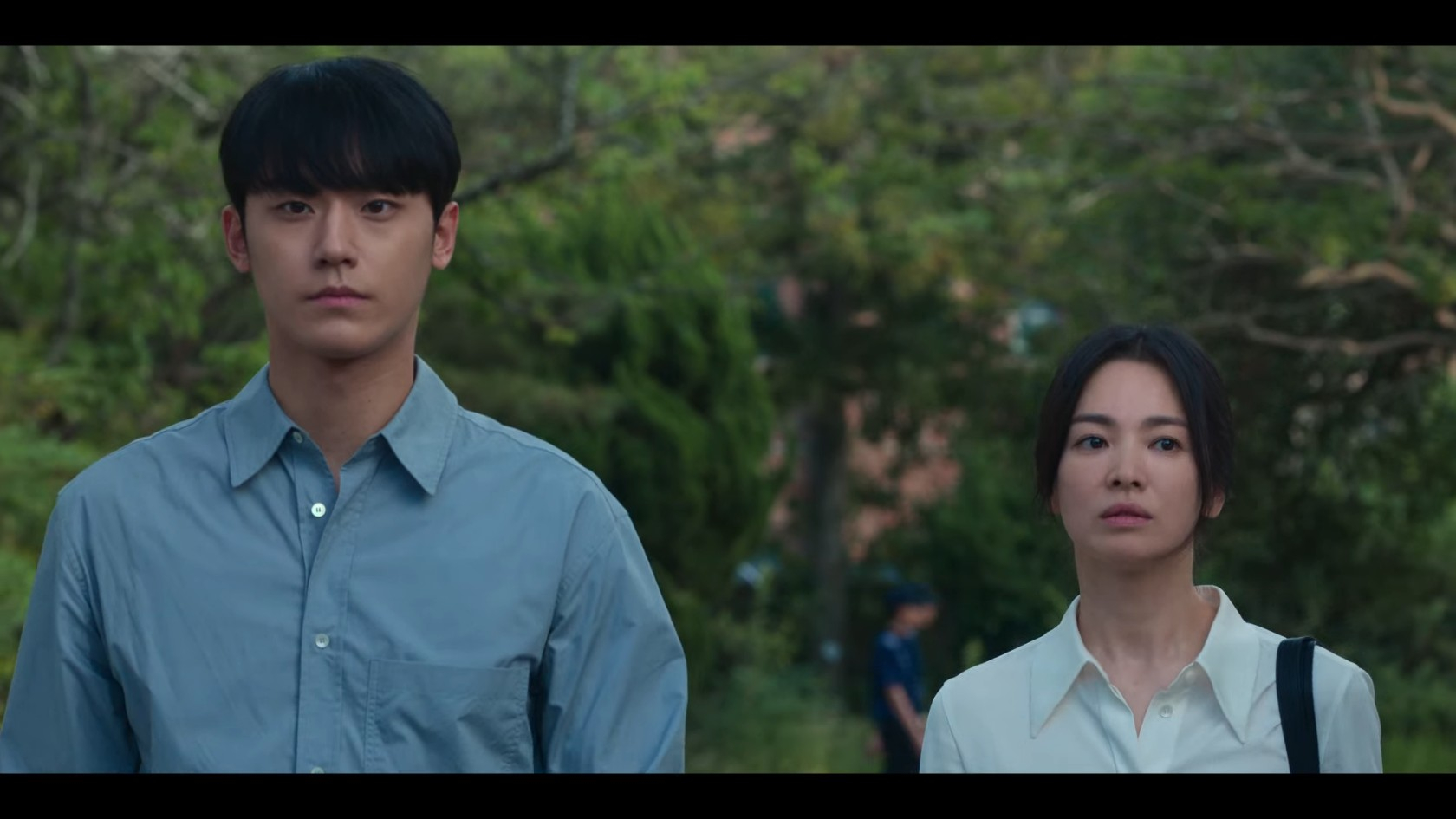
RELATED POSTS
[ad_2]
Source link

